Many social media gurus will tell you a Twitter feed can cure cancer. Maybe I’m uninformed and this is true – I can’t be sure.
One thing I do know is that social media sites were not created to sell books simply via their existence. This originally started out as a post focused on video, but I bloated it out to social media in general, because it really has to tie together in a nice big bow.
I’m going to lay out a bit of my thinking and rationale about this topic with regard to indie writers using these channels – it’s not a templated plan of any kind. As I tell people often, there is no template for success with anything in social media. There are only certain guidelines and principles.
Let’s assume you have a personal website and blog. You can see mine here – I update it a lot, in about as random of a nature as one can.
(Frankly, most of my creative ideas find their genesis in there, so whether people read or not, I’d be doing it. My latest book, The Christmas Bridge: A Timeless Excitement Fable, started as a blog post I whipped out in ten minutes back in April.)
I’ll also admit that being a comedy writer helps me immensely with all that follows. A core facet of the internet is about looking for small and irreverent distractions from work. If my books were about Civil War history I’m not sure exactly how I’d navigate these waters.
FACEBOOK
I’m serious – don’t even do this unless you have a built-in audience/readership of at least 500-1000 people that aren’t family and friends. I know it feels good to put the page up – it validates the existence of the completed work to some extent. I know this.
In reality, if you don’t have an established and decent-sized readership for your work, you’re not selling books through here – you’re just annoying your family and friends, and (likely) struggling to come up with things to post there.
(If you have a huge budget for Facebook advertising, this might be an adjustable stance. If you have a huge marketing budget, I’d put most of that money elsewhere, though.)
TWITTER
Some general rules. There’s some tough love here. You probably know a lot of this already.
1) Your hub is you. The author. Assume you will write more than one book. Sell yourself and do it through conversation, not endless links to your material. Your Twitter feed is not a walking billboard, and you are (probably) not a celebrity author.
Most of us are humbly trying to move some books and get some traction. The best way to do that…is to humbly move some books and get some traction, not by acting like you’re an A-list author putting out your latest best-seller.
Ask yourself:
What is my personal Twitter feed adding for other people?
If your answer is, “they get links to my book/blog/etc,” you need to rethink it.
Most of us indie authors are not the star of the show. You don’t go to a cocktail party and shove your card down people’s throats before shaking their hand and talking to them for awhile.
Twitter’s a cocktail party. Treat it that way.
2) Don’t set up a Twitter feed for your book that exists only to sell your book. This works great if you’re Stephen King, because there are thousands and thousands of people who actively want to know every detail about the new book. It warrants a Twitter feed because it’s helpful.
If your book’s feed is just a sales brochure it’s not providing value to anyone but you – who likes to be sold to?
3) Similarly, don’t get too clever, i.e. setting up a Twitter account of a character in your book that really exists only to sell your book. It’s just #2 in a disguise.
4) Do set up a Twitter account for a character in your book if there’s a way to make that character valuable on his or her own terms. We executed this pretty well when marketing my movie Who Shot Mamba? – there was basketball schtick throughout the film, so we took two characters (@InflatableBen and @OrangeRoundie) and set them off to talk with NBA fans about the league.
These went up six months before the movie was out.
When it came time to market the film, there was a nice stable of people following these characters who had no idea they were being sold a movie the entire time.
I know this sounds deceptive, but it’s not. They functioned the same as you the author would – they became entities unto themselves that provided value on a human level. They’re both still active today, because people like talking basketball (and other topics) with them.
For The Christmas Bridge, this has taken the form of @ChristmasTimmy. I can’t say I have a targeted idea what he’s doing like the basketball-themed accounts – he works from a “general irreverence” standpoint. This fits the tone of the book. Frankly, I enjoy his existence whether he’s selling a book or not, and I think this is why it’s been successful thus far.
Timmy’s been out there for a couple months, and of course he’ll start posting links here and there to move some product. I’ll track what that does as far as traffic and sales.
(I’ve leveraged my previous accounts and characters to build his following. He was also a character in Mamba, which doesn’t hurt.)
VIDEO
YouTube is essentially a social network, and with the number of book trailers around, I want to touch on this a bit.
1) They’re getting a lot better, but I’ve never been a huge fan of book trailers. The idea of selling written text as video has always felt “off.” It’s like selling a movie with a brochure.
I can’t say don’t do one, because if you optimize your keywords and tags, you can land in some strategic searches and get exposure. I wouldn’t say a killer trailer is definitely going to sell you books, though. It might just be the way my brain works, but I’ve seen some really sharp trailers that utilize actors and live-action, etc…and it makes me want to see the movie of that trailer. It’s actually disappointing when I find out it’s for a book.
If you have the ability to put it together yourself, by all means do so. I wouldn’t pay big money for one of these though. You’d be much better off with this next option.
2) Video of some kind related to your book. This is about as vague as it gets, but find something in your theme, characters, or text that relates to something that can be put to film, and do it.
How many times has a commercial had you enthralled, and it didn’t tell you what it’s for until the end? I tend to think this is where book-based video should lean.
Videos that get the most traction online in general are usually cute kids and animals. With The Christmas Bridge, I’ve asked people who have enjoyed my previous work to read excerpts from TCB to their kids and/or animals and send them to me.
I cut in some branding and other custom nonsense, and I’ve got a cute little video advertising my book in a non-pushy manner. They get a free copy and something fun with their animal/child in it.
This accomplishes a few different goals. More than anything, it hopefully makes the person who made the vid laugh a little – a happy reader is more valuable than anything to a writer. On a more logistical level, it also hits the search/exposure mentioned in #1, and it gives me regularly updated content, which is so important.
There’s nothing worse than linking to the site of your book over and over and over. Eventually people tune you out, and I think all artists are a bit marketing-averse in general. I well know the guilt one feels when linking/Tweeting just a bit too much in the hopes of selling a few books.
I know it’s not being a supportive peer, but authors and filmmakers I follow who just Tweet the same link over and over get unfollowed in short order. If you’re giving me something new, I’ll probably click through and be re-exposed to your work. Expose me enough times, and I’ll buy it.
SUMMING UP
I hope you can see how all the pieces above work together to make a complete plan a bit beyond, “start Twitter feed and hope for readers.”
Of course, there are other pieces and options available. We had an iPhone soundboard app for the film, and if you have a friend that’s a coder, you might be able to think of a game or something that would get your book’s app some exposure outside of normal reader circles.
That’s really what you need to do when talking about “finding your audience” with social media. What can you create or put together that’s not a direct ad, will provide value to those it’s exposed to, and will attract people who otherwise would have no reason to notice your book?
If you can answer those three questions and filter it through what I’ve outlined above, you’re going to move some product.
You might watch this video from Chris Brogan – he just put it out the other day, but this is basically what you need to do.
What are you doing in social media for your books or yourself? Am I totally off-base here? Let me know in the comments if you are so inclined. Oh, and look at this Christmas Bridge Cat video.
Get an Editorial Review | Get Amazon Sales & Reviews | Get Edited | Get Beta Readers | Enter the SPR Book Awards | Other Marketing Services












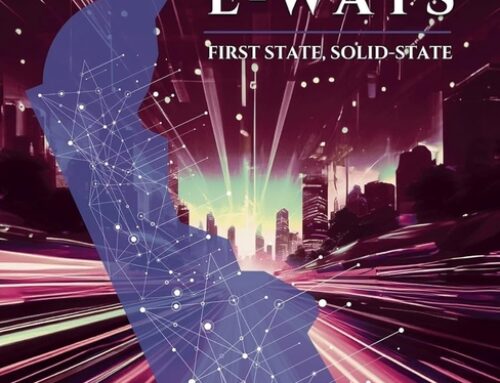

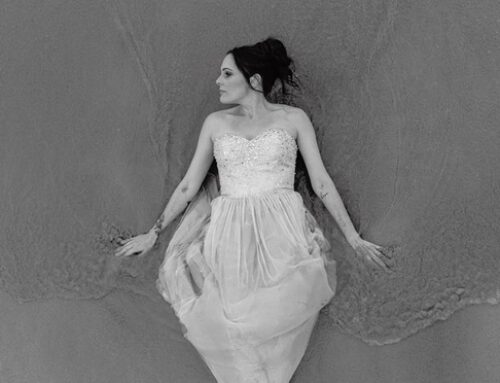
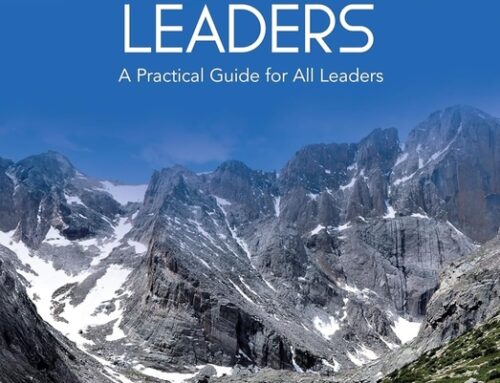
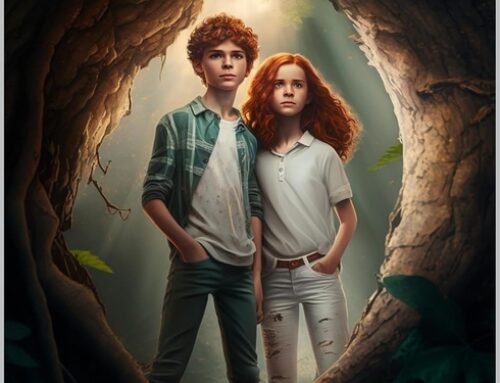

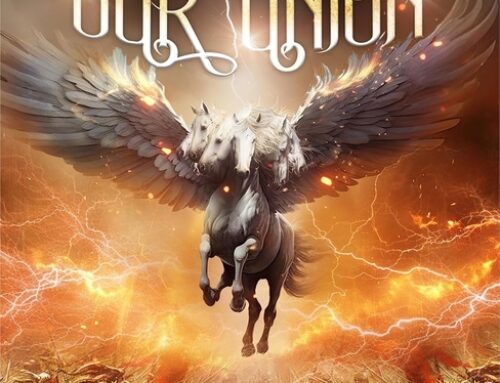
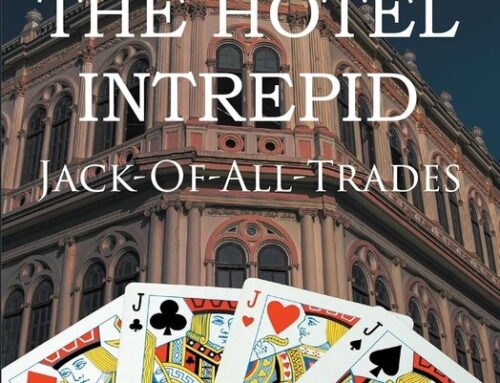
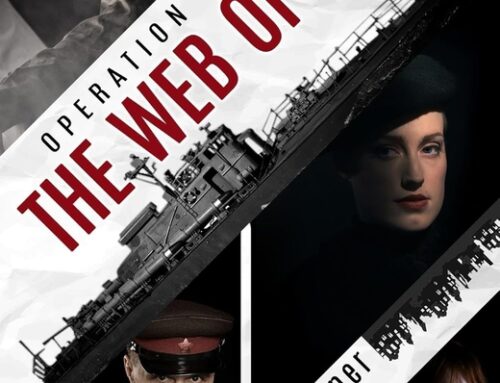

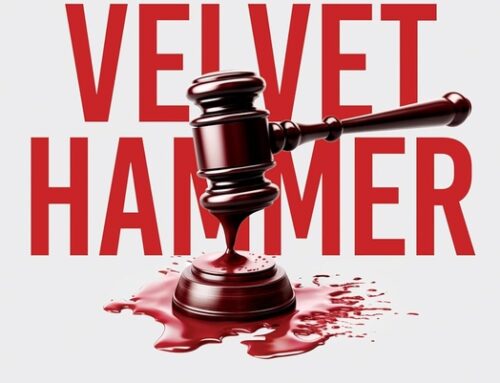
Good points all, Brian.
I’ve been flogging my books on Facebook going on two years, felt some early success, but none more for a long time. I have come to react strongly to the sheer, crushing inanity of the entire burbling Facebook enterprise. I’m getting close to pulling the plug, period.
This is good, common-sense advice, B. I’ve been building my social-media connects for the past year or so, starting with Twitter and then moving into FB about six months after that, then Goodreads a month or so ago. I also interact with a few blog communities where I feel like I’ve got some blood brothers and sisters.
I agree with all you’re saying. I believe social-media interactions have to provide “value” to people, which is Joe Marketing way of saying you need to be cool, friend-like, yourself… if your are indeed relative cool and friend-like, funny, etc. If you’re not, well then… I dunno.
Also, I don’t know that I’m “right” about this or not — my transmedia novel’s not coming out in print for another 8 months — but I believe direct-messaging and yes, Twitter dialogues/chats, are better ways to personally connect with people than tweeting into the cosmos or just FB-posting random stuff all the time. Sure, you can/should do that, too, esp. to spread the love and support fellow artists you respect, but I prefer the direct approach. It’s overwhelming at times — can you really keep in touch with thousands of followers/friends? — but I do feel like I’ve made authentic friendships with a number of people I never would have known otherwise, and whether or not they end up buying my book when it finally hits isn’t the point b/c their support has been instrumental in terms of helping me power through this project to the end.
So yeah. I like this post. I’ll tweet it out for ya, too, of course. RTs, baby. RTs… we are Twitter homies, after all.
Facebook for me has actually generated sales. Frankly, I think it’s a matter of targeting it correctly to get results. If you have an interest you can focus upon, then you can direct your connections to people in that same stream. If you have a generalized subject matter, it might be harder.
I’m heavily involved in the Phantom of the Opera community. There are many groups and fan pages I frequent. I have a personal page, but also an Author page. Because of the fan base in Phantom, I’m able to target individuals who like the story. I have two books that are Phantom-related.
In addition, my last book was set in Malta, so I targeted the demographics with advertising. That in itself reaped huge benefits, because I was contacted by the largest newspaper on the isle for a book review and interview because they discovered me on Facebook. The fans in Malta I’ve gained through Facebook are turning out to be extremely valuable, as they continue to promote my book on the island in places I cannot reach.
I don’t spend much on targeted advertising on FB, but it does generate interest and drives people to my pages. I put the “LIKE” link on all of my websites too. 95% of the time I have no idea who these people are either to “like” me and the numbers continue to increase.
I’ve just rolled over 500 on my author page, along with 876 on my personal page. I link my blogs through Networked blogs through FB when I post, and they automatically post on my Facebook pages. That little trick drives a lot of traffic to my blogs, which drive people again to my books.
As far as Twitter, it’s a waste of time. I’m a tiny feather in a huge flock of screaming tweets looking for self-affirmation. I do have my Facebook author page hooked to Twitter though, so when I post an update it Tweets it a the same time. I doubt very much that Twitter is that useful, unless someone tweets you to a celebrity. I did read one tweet from a person in the U.K. who read my book The Price of Innocence. When Tyra Banks tweeted the question has anyone read any good books lately, they tweeted The Price of Innocence by Vicki Hopkins. I doubt she read it though since I haven’t been invited on the show. LOL
Vicki
Here is my Facebook Author Page:
http://www.facebook.com/ThePhantomOfTheOpera?ref=nf#!/pages/Portland-OR/Vicki-Hopkins-Author/287168905516?ref=ts
The link above isn’t working. Try this one:
http://www.facebook.com/pages/Portland-OR/Vicki-Hopkins-Author/287168905516?ref=ts#!/pages/Portland-OR/Vicki-Hopkins-Author/287168905516?ref=ts
Nice post. You do not need a huge Facebook advertising budget maybe just enough to get you to 800-1000 highly targetted fans – cost me around UK£300. Hopefully that is close enough to start a roller coaster from social connections.
This is right on and as sensible as it is–it isn’t common sense for many. What it is, and what social media is, essentially is a specific type of marketing platform. Like a strange abomination of WOM marketing and guerilla marketing, both of which you need to have a clear targeted outcome and in neither case is that outcome a direct sell.
As you’ve noted, it’s all about adding value to the person your reaching and that’s done by somehow connecting your product/content to their lives in a meaningful way.
It’s meaningful when someone you know says–hey, this is great or look what this thing I have that you don’t did for me.
Likewise, it’s meaningful when someone on a street corner gives you something to drink, right when you were thirsty-and gee, whaddayu know–it tastes pretty darn good.
Neither of those interactions with the product lead to a sale. And before they do, the prospect will probably have to hear it from someone they know 10 more times or somehow interact with the product several times before a sale is made.
The idea is the same in the social media world. Fortunately, it’s typically a lot cheaper to make those interactions but it does require time and focus.
And there my friends, is where many a would be book seller falls short.
I agree that social media was not designed to sell books etc. There are ways to leverage it to do so though. I have to agree with Brian when he says that you will annoy a lot of people if you only tweet with links to your own stuff.
You have to remember that it is a social gathering and you do have to add something of value to the community. That is difficult but not impossible. You simply have to keep working at it, day after day, but if you can say leverage 30 to 40 thousand followers without appearing to be a spam artist then you may be in a position to influence them.
Like I said not an easy task but not impossible either.
Since for many authors, this is either hit or miss or much trial and error, i’ve created a weekly newsletter called Socially Savvy. Check it out here: http://us2.campaign-archive1.com/?u=5466c194684c34d9821b646ad&id=2a070ce2b1
hope it’s helpful!
jaebi